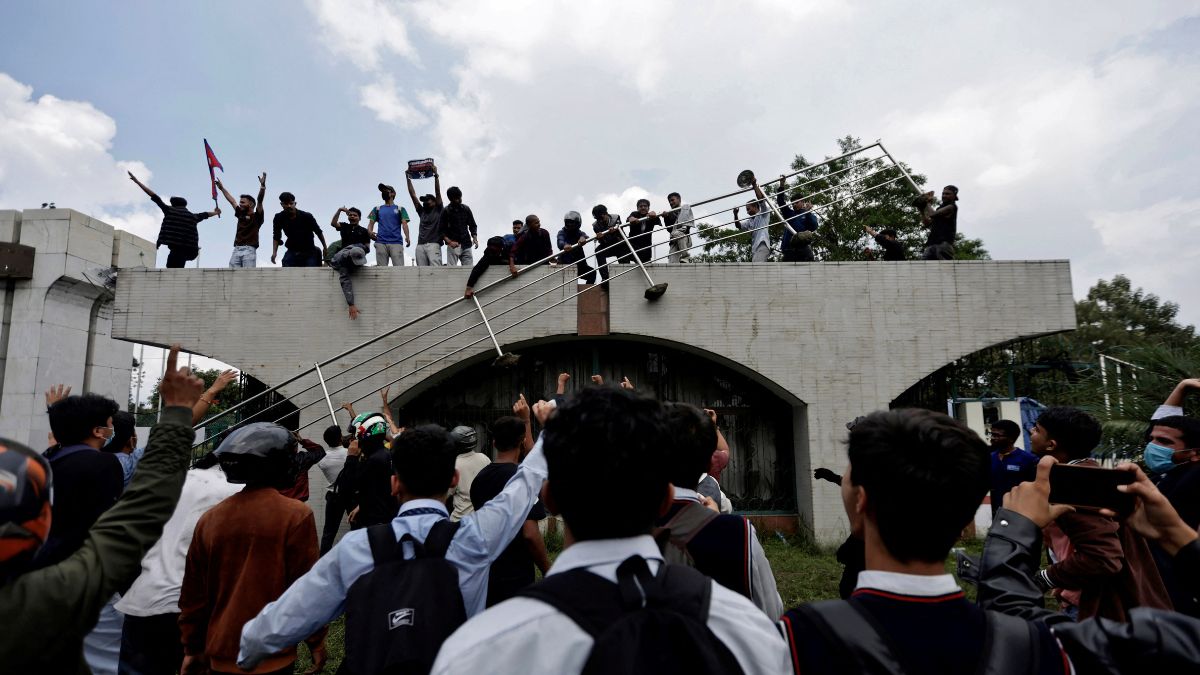A day after the police crackdown killed 19 protesters and injured hundreds , Prime Minister KP Sharma Oli resigned on Tuesday.
In a letter to President Ram Chandra Paudel, Oli said, “Considering the current situation and to facilitate the resolution of political deadlock and problems, I have resigned from the post of Prime Minister as per Article 76(1) of the Constitution.”
Oli’s resignation came after three Nepali ministers — Home Minister Ramesh Lekhak resigned on Monday evening and Agriculture Minister Ramnath Adhikari and Water Supply Minister Pradeep Yadav on Tuesday morning— quit the government and several others were understood to be about to quit.
While Lekhak and Adhikari are from Nepali Congress (NC), Yadav is from Janata Samajbadi Party.
Prior to Oli’s resignation, NC President Sher Bahadur Deuba was under pressure from party leaders to quit the Oli-led coalition government , according to Kantipur.
Army evacuates ministers as protesters target politicians’ homes, party offices
The Nepali army on Tuesday evacuated ministers from Kathmandu’s Bhaisepati neighbourhoods in helicopters as protesters continued to attack politicians’ homes and party offices, according to The Kathmandu Post.
Visuals of both private and army helicopters flying in and out of the area appeared in the media.
Senior security officials told The Post that the army has also been deployed for the security of the parliament building. They further said that high-ranking officials were being provided security at military barracks.
However, protesters still managed to storm the parliament building and set it on fire.
Witnesses told Nepal’s Khabar Hub website that protesters breached security barriers and forced their way inside the parliamentary complex before torching parts of the building. The report said that thick plumes of smoke were seen rising from the premises as security forces scrambled to regain control.
Impact Shorts
More ShortsProtesters on Tuesday set fire to Oli’s private residence in Bhaktapur in the Kathmandu valley. They also torched the Nepali Congress’ central committee office in Sanepa neighbourhood of Lalitpur near Kathmandu.
The mass movement that ousted Oli
Previously on Monday, several thousands of Nepalis took to streets across country on Monday in youth-led protests against the government’s corruption and ban on social media.
The Kathmandu Post reported that the police crackdown killed at least 19 persons — 17 in Kathmandu and two in eastern Nepal’s Sunsari district. More than 400 were injured.
Thousands of protestors, many of them in school or college uniforms, marched with placards with slogans such as “Shut down corruption and not social media”, “Unban social media”, and “Youths against corruption”, according to Reuters.
In Kathmandu, as thousands marched towards the parliament, the police set up barricades. As they breached the restricted zone and entered the premises, the police responded with water cannon, tear gas, and live bullets, as per The Post.
‘Are we heading toward authoritarianism?’
In his resignation letter shared on social media, Agriculture Minister Adhikari of Nepali Congress asked whether the country was heading into authoritarianism instead of democracy. He said that he could not remain in the government after the “killing and suppression of innocent young children”.
“After the killing and suppression of innocent young children, the nation has been plunged into mourning. Remaining in government under such circumstances goes against my moral values and the teachings of my party. My conscience has warned me, and I feel guilty continuing in my ministerial role. Therefore, I extend a moral apology to the nation and the people, and I hereby tender my resignation from the post of Minister, expressing my objection to this undemocratic action by the government,” said Adhikari in Nepali.
Water Supply Minister Yadav said in Nepali that he was resigning in “opposition to the repression carried out by the government and administration”.
While the immediate trigger of Monday’s youth-led protests, being dubbed the ‘Gen Z protest’, was the Oli government’s ban on 26 social media platforms, including Facebook, Instagram, and X, the ban merely brought public’s anger against Nepal’s political instability, consecutive governments’ failures to address their concerns, and a widespread sense of rampant corruption in the government to the fore.
)